A Wining Cost Estimate
That Helps You To Win More Painting Construction Projects

In choosing the perfect exterior paint for your home, there are important considerations to take into account. Your choice of color makes an impact on the aesthetic appeal of your property as well as on its overall value. Here are key factors to bear in mind when selecting your exterior paint colors:
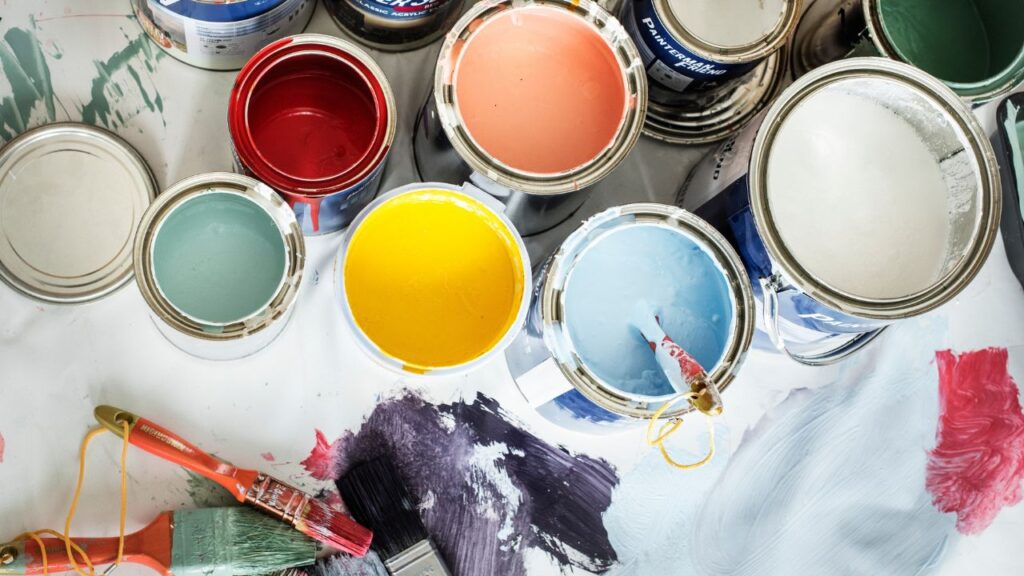
3. Climate: Your exterior paint should withstand the elements. Different regions require different types of paint, so choose a weather-resistant paint that would fit your local weather conditions.
4. Accent Features: Identifying your home’s accent features will significantly influence your color choice. You want to ensure a harmonious color palette that accentuates your home’s unique elements.
5. Resale Value: Your color selection for the exterior of your property impacts its overall resale value. Opting for classic and neutral colors that appeal to a broader audience will result in a desirable home for prospective buyers.
6. Personal Style: Your personal style and taste are necessary to consider in choosing your home’s exterior paint colors. Choose those that you enjoy and will make you feel proud of your property’s overall look.
It’s also crucial to note that choosing the right paint color for your home can increase its curb appeal by 60%. This fact is supported by a study conducted by Zillow.
Choosing the right exterior paint color is like picking a partner – it’s all about finding someone who can handle your mood swings through all seasons.

Geographical location and climate patterns have an important role when selecting exterior paint colors. Consider temperature, seasonal shifts, precipitation, and humidity. Warmer, sunny locations suit brighter yellows and oranges. Neutrals are not suitable for dry areas as they reflect heat onto walls.
Also, take into account paint’s resistance to wind, rainfall, and snowfall. Masonry paint is suitable for rain-exposed surfaces, whereas organic coatings need regular maintenance in more humid areas.
Darker colors absorb more heat, making it harder for a building to insulate itself. It’s essential to choose a color that fits your home’s architectural style. Don’t go for ‘Taco Bell drive-thru’ red unless you want it!”
Picking the right exterior paint colors for your home is key. Its architectural style sets the tone for its overall look. To help, we have a table for various styles.
The following table lists recommended colors for different architectural styles:
Architectural Style | Recommended Colors |
|---|---|
Colonial | White, cream, light yellow, light blue, light green |
Victorian | Red, blue, green, or white with contrasting trim |
Ranch | Beige, taupe, or gray paired with white trim |
Craftsman | Earthy tones like brown, green, and beige plus darker shades |
Modernist/Contemporary | Neutral shades like gray and soft white combined with bold accent hues |
When selecting a color, account for unique features like shutters and trims. These add depth and dimension to any scheme.
Pro Tip: Check local homeowners associations or city regulations for acceptable colors. Don’t be the house that clashes with the neighborhood!
When picking exterior paint colors, consider the neighborhood aesthetic. Look to surrounding architecture and color schemes for guidance. In older neighborhoods, the character of the area should be taken into account.
Be aware of Homeowners’ Associations (HOAs) or community guidelines. These can be strict. Follow the rules to fit in. Sometimes, there are exceptions to the HOA rules based on climate and historical factors. If so, look for examples from similar homes for creative insight.
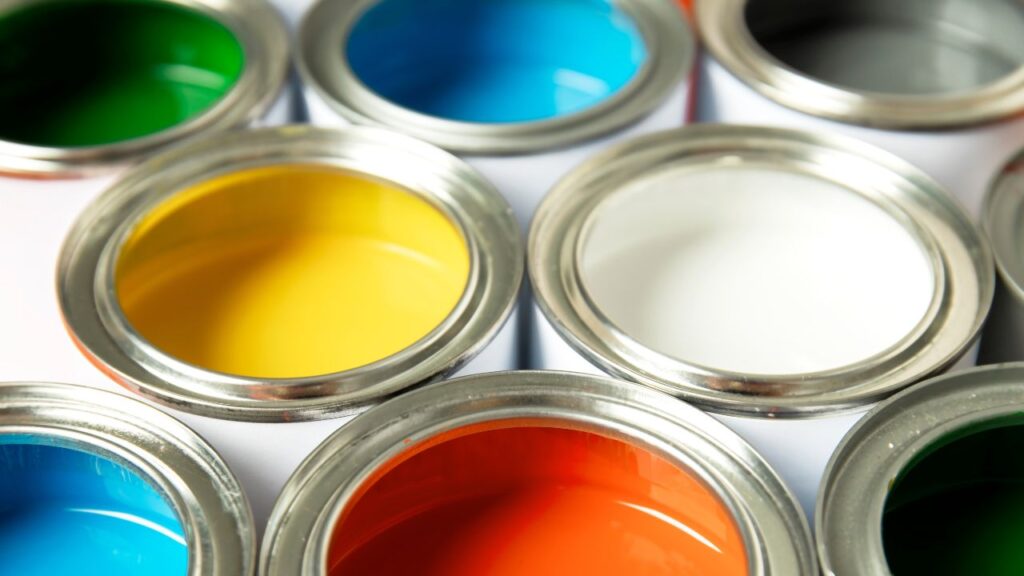
Create continuity with other houses while still showing individual style choices. Muted earth tones like green and beige work well in nature-centric areas, while brighter whites and blue accents give a cooler feel near waterfronts.
Personal style and preferences should be considered, but ultimately, it’s important to take into account the neighborhood’s opinion.
Your individual style and desire are essential when picking the perfect exterior paint color. Choose one that expresses your character and complements the architecture of your house.
Account for the design of your home when selecting a paint color. Your preferences should blend with existing structures, such as the roof, windows, doors, and sidings.
Also, consider climate, local hues, and guidelines. Make sure the chosen color meets all legal and environmental demands.
Picking an exterior paint is a huge investment impacting the look of your home. So, research your options, ask for help if needed, and avoid rash decisions.
Don’t settle for an unappealing color scheme. Take time to understand what you like and make informed choices for beauty and durability. Why not go wild with your exterior and paint the town in whatever hue you want?

Selecting the right color schemes for your home’s exterior is crucial in creating an appealing look. Here are some popular color palettes that are trending in the exterior paint industry:
Consider picking colors that complement the style of your home, the neighborhood, and the surroundings. Avoid bright, eye-catching colors if you live in a quiet, serene neighborhood.
To make your home stand out, select contrasting colors that play off each other. An excellent way to do this is to select complementary colors such as blue and orange or yellow and purple. Another great option is to use an accent color on your front door and shutters to make them pop.
A couple in a quiet neighborhood decided to paint their home a bright yellow. The yellow stood out in the neighborhood, but it didn’t match the surroundings, and it looked out of place. The couple ended up repainting their home in a neutral beige color that complemented the landscape, and it blended well with the neighborhood’s style. Their home now looks welcoming and charming, and it has boosted their curb appeal.
Nothing says ‘I haven’t made any daring choices in my life’ quite like a classic white or off-white exterior paint color for your home.
Maximize your painting construction business’s potential with our competitive financing options

White and pale cream are classic shades, lending a timeless elegance to any exterior. These subtle hues reflect light, making homes appear bigger and they have a cool effect on the eye.
Mixing both colors creates visual depth – like on Colonial-style homes.
White or cream exteriors are simple, yet elegant. They blend with any landscape and look sophisticated. Plus, they won’t go out of fashion!
Make your home look great quickly and cheaply with this classic paint palette. Want to make your neighbors envious? Choose from these blue and green exterior paint combinations.
This color palette offers calming and refreshing hues to elevate any exterior design. Soft greens and blues evoke nature’s beauty and tranquility. These shades are versatile, suiting different architectural styles, from contemporary to traditional. Their enduring appeal is undeniable, making them a popular choice with homeowners who desire a serene atmosphere in their outdoor space.
When it comes to picking the right shade of green or blue, take undertones into account. Grayish blues offer sophistication while aqua blues suggest playfulness. Olive greens have earthy tones, ideal for wooden doors and trimmings. Sage green adds subtle warmth to brick houses.
This color combination offers harmony between the home’s facade and its landscape. Muted blue can be the main color, with soft green accents. Light colors like sage on larger surfaces capture natural light and provide nice contrast against darker tones.
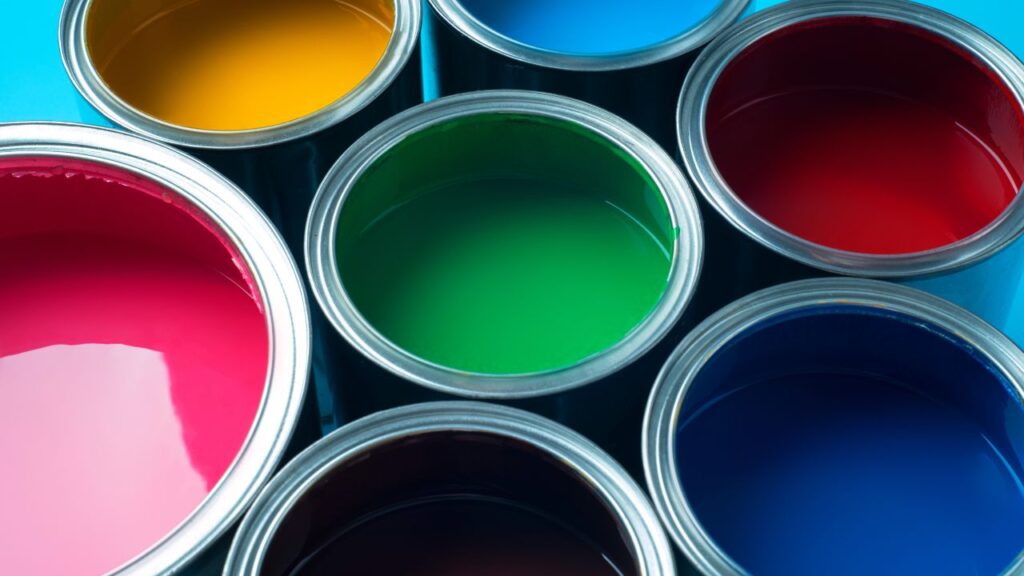
Pro Tip: Use warm-toned lighting at night to bring out the richness of blue and green hues in your exterior palette. Earth tones will make your house blend in with nature, but still be the envy of the neighborhood.
Earth Shades are a popular palette for house paint. These shades include hues like brown, green and gray – like rocks, soil, wood or plants. They blend with the environment and give a warm feel.
Using these colors offers a timeless look. They add depth and texture to the facade. Earth colors bring a sense of safety, stability and harmony. Perfect for a cozy atmosphere all year round.
Experiment with different shades of beige, tan, olive or terracotta. Mix earth colors with neutral shades like white or black for contrast. Metallic fixtures, flowers or natural wood elements can add character too.
Your house will be a showstopper! Vibrant paint color combinations will dazzle your neighbors!
Go bold with vibrant colors to give the exterior of your home a dramatic flair! Reds, yellows, oranges, blues, and purples are all great options for making a statement. Consider the landscape, neighboring homes, and architecture when picking colors. Neutral tones like white or beige can help balance out the bold colors.
For a unique twist, try unexpected combos like lime green and navy blue or hot pink and charcoal gray. This will give your home an individual look while still keeping it cohesive.
Pro Tip: Use high-quality paint and consider professional help for an even finish. Testing colors is like trying on swimsuits – time-consuming, awkward, but necessary.
Choosing the Right Colors for Your Home Exterior involves testing them to get a better idea of how they will look on your property. Follow these four steps to test colors before choosing:
It is important to note that colors may look different on different surfaces and lighting conditions. Therefore, testing the colors on your actual surface is crucial to ensure the perfect color match. Consider hiring a professional painter to help guide you in the process. According to Sherwin-Williams, “Painting the exterior of your home is one of the most valuable investments you can make. With proper planning, the right tools and materials, and a professional paint crew, your home will look great for years to come.”
Get ready for a colorful adventure as you sample different paint shades, because choosing the perfect exterior color for your home is not for the faint of heart.

When picking a paint color it can be tough. But, testing colors is a must! Start by getting ideas from mags and blogs. Note the lighting in the room to be painted, as it can make the colors look different. Get small sample pots from the hardware store, or use online peel-and-stick samples for temporary results. Check out the colors at different times of day and in different lights. Don’t just rely on digital renderings, as they can change the color. If not sure, hire an expert or color consultant for advice. Make sure colors are fully mixed before use for an even coat. Get advice from others too. A friend’s living room was too dark, so they painted it brighter and it changed the space. Why not try out a rainbow effect on the whole house?
Testing colors on different surfaces is essential for achieving a perfect color scheme in your house. This can help you choose the best colors for each part of your house.
For example, compare the look of various shades of green on walls and tiles with a table. It should have columns for each surface.
For instance:
Surface | Shade of Green | Look |
|---|---|---|
Bedroom wall 1 | Sage green | Calming and warm |
Kitchen backsplash tile 1 | Mint green | Refreshing and stylish |
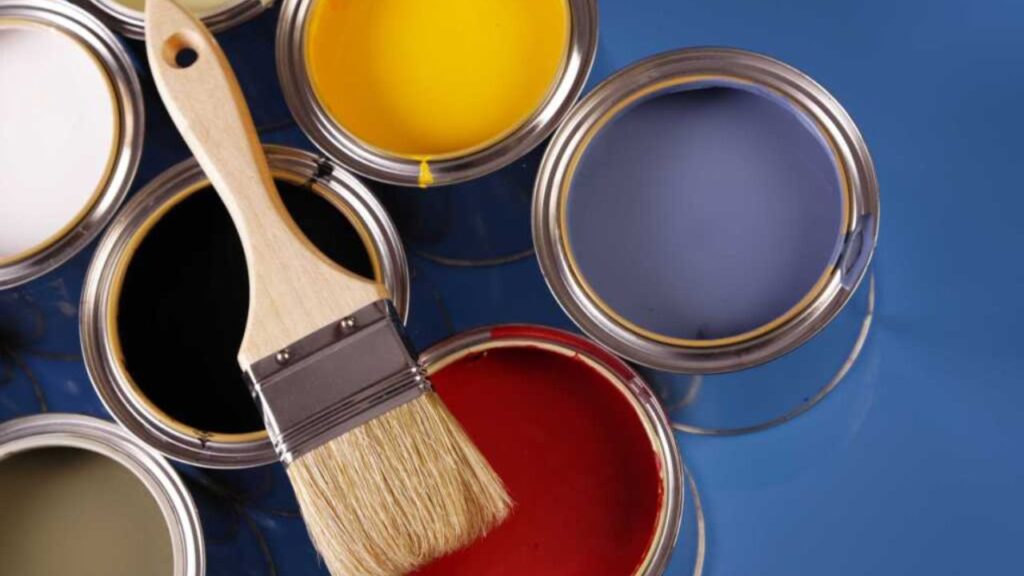
Lighting conditions may also affect the color. For example, colors can look different on wood or metal corners.
My friend didn’t test her color choice. She ended up with a room full of clashing greens. That’s why it is important to test colors before choosing them for your home décor.
Otherwise, colors that looked good in the store may give your living room a crime scene vibe.
Choosing colors is key! Think about the environment and lighting. Consider natural light, artificial lighting, wall textures, and furniture colors that could change the color’s appearance. Create swatches to test how the pigment looks in different lighting. Buy paint samples to observe how it changes over time.
It’s also essential to recognize how one color can affect another space, even if there isn’t a physical separation. Choose colors that go together, but still have their own unique qualities.
Use resources to pick paint colors for your project. Don’t miss out on great hues by not taking all factors into account. When you’re ready to make the final decision – take a deep breath and throw a dart at a color wheel!
Selecting the Ideal Exterior Paint Colors for Your Home can be a challenging task. To help you make the final decision, here are essential recommendations to consider.
Moreover, it is worth noting that the color of the exterior paint can increase the value of your home by up to 20%. A study by Zillow, a real estate and rental marketplace in the US, reveals that homes with dark and bold exterior colors, such as black and navy blue, sold for up to $6,000 more than expected.
Get ready for a family feud, because everyone’s got an opinion on your paint choices.

Getting Input from People You Love
People you love are important when making a big decision. Here are some techniques to get help from them:
To make this process more effective, choose the right person to get advice from – someone with experience in this field.
Did you know that studies show that people’s decisions can change drastically after hearing another opinion?
Keep in mind that a house is like a first date – it’s all about first impressions. Make sure the house looks great before making your final decision.
When selecting a dwelling, the aesthetic should be a key factor. Visual appeal is important, from the roof shape and hue, to the door and window style. It’s not just about looking nice – it’s about whether the structure fits its environment. A building that stands out too much can reduce value or make it less attractive to buyers.
Remember to ponder how any alterations in terms of colors and finishes might alter the overall look. An eye-catching accent color or modern feature may be enticing – but if it clashes with the existing architecture, the money spent will be wasted.
In 2017, a survey by Houzz showed 58% of homeowners hired professionals for home improvement projects, showing they are invested in keeping their property’s aesthetic appeal. If unsure, consult a professional – the Magic 8-Ball won’t give you all the answers!
Invest in professional advice for added clarity in decision-making. Access expert opinions and technical info unavailable otherwise. Explore options, evaluate pros and cons, select what suits your needs best.
Advisory services come with years of experience. So benefit from vast knowledge to make informed decisions. Get an impartial perspective, guiding you through challenges. Install comprehensive strategies to achieve goals.
Consult with experts for tailored solutions to address specific challenges. Get alternative strategies and perspectives previously overlooked. Make more informed decisions.
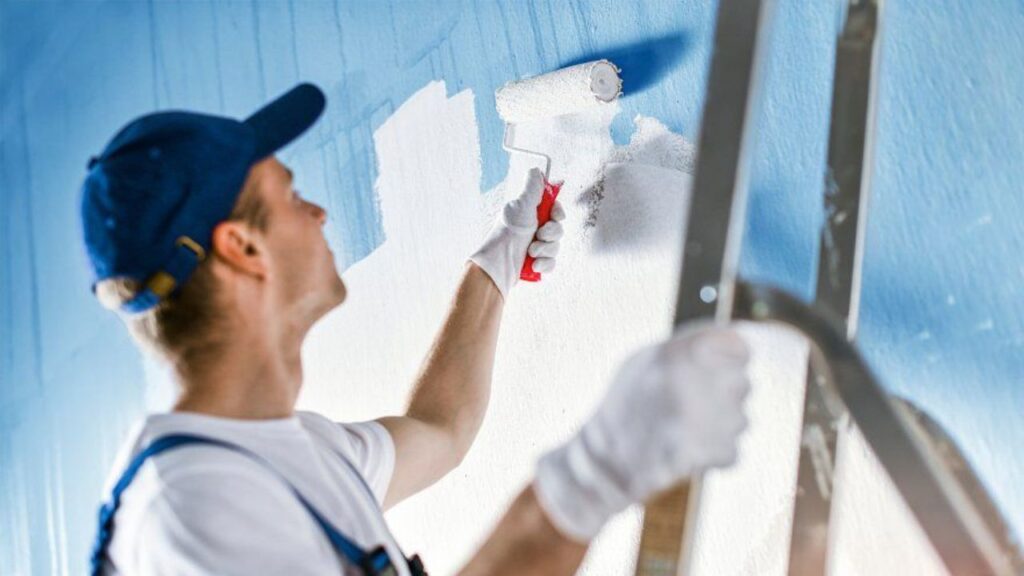
Different advisors specialize in different domains – so pick the right one. A study by CNBC found 89% of millionaires use professional advice at some point while building wealth. This shows how timely guidance from pros shapes fortunes of world’s wealthiest. Choose wisely!
Selecting the Perfect Exterior Paint Colors for Your Home requires careful consideration of several factors to ensure a cohesive and eye-catching look. Here are some tips on how to choose the right shades for your home’s exterior:
Dos and Don’ts for Choosing Exterior Paint Colors:
Additionally, it might be helpful to consult with a professional color consultant or designer to make the best color choices for your unique home. They can offer insights on the latest color trends, as well as advice on color combinations and finishes that work well together.
Did you know that studies have shown that exterior paint color can affect the temperature inside your home? According to the US Department of Energy, choosing light colors can reflect heat and save energy on cooling costs.
Trust me, your instincts are better at picking paint colors than that cousin who thinks yellow and purple look great together.

When selecting the exterior paint color for your home, there are some important factors to consider. Trust your intuition and coordinate with the roof and landscaping. Here are some tips to help you make the right decision:
It’s also worth considering less conventional approaches, such as black. Choosing the right color is about more than just appearance; it affects resale value. Don’t forget that your neighbors likely have firm opinions. Otherwise, your house may become a tourist attraction for all the wrong reasons.
Neglecting Local Visual Appeal and Foregoing Prerequisites
Picking the wrong paint shade for your house’s exterior can have a big effect on its curb appeal. It’s necessary to ponder the look of your neighbourhood prior to settling on a colour scheme. Ignoring prerequisites like power washing, sanding, and priming can cause paint to peel and damage your home.
It’s important to factor in external elements such as sunlight, weather patterns, and surroundings that could influence colour selection. Trying to achieve unique results without taking into account vital factors can cost both money and time.
To get the best outcome, do these things:
So go ahead, paint the town red (or blue, or green), but make sure it’s the perfect colour that brings out the best of your house’s exterior.
Choosing exterior paint color for your home is vital. It displays your style and taste, and makes your house look distinct from the rest in the locality. Thus, it’s essential to consider architecture, landscape, neighborhood and personal preferences before selecting the color. Invest in high-quality paint for it to last longer and resist harsh conditions. Plus, you can save money in the long run.
Using online color visualization tools or consulting professionals could help you make the right decision. As per an article on HGTV.com, “Hiring a professional color consultant will cost around $100 per hour, but could save you costly mistakes.” So, it may be worthwhile to hire professionals if you are still not sure about the exterior paint color.
Exterior paint colors play a major role in enhancing the appeal and character of your home. It sets the tone for your home’s personality and creates a welcoming and memorable first impression.
When selecting an exterior paint color, there are several factors to consider such as the architecture of your home, the neighborhood, the surroundings, and the overall style you want to achieve. It’s essential to consider the colors of existing surfaces, such as the roof, trim, and landscaping to achieve the perfect complementary color scheme.
Popular exterior paint colors for homes vary widely by region, style, and personal preference. However, some timeless classic choices include neutral hues such as white, beige, grey, and a range of blue shades. While bolder color options include red, green, and yellow.
Yes. Climate plays a critical role in selecting the right exterior paint color for your home. Some colors absorb more heat than others, which can impact your home’s temperature and energy usage. For hotter regions, lighter colors that reflect the sun’s heat work best, while in cooler climates, darker colors can absorb warmth to provide insulation.
Yes. It’s essential to test the paint color before applying it to the exterior of your home. Paint samples can appear variously under different lighting conditions, so it’s best to test it on a small section and examine how it looks in different light settings and times of the day.
While selecting an exterior paint color can be exciting, it can also be overwhelming, especially with the countless options available. Hiring a professional paint consultant who understands color theory and has experience selecting paint colors for homes can be beneficial in guiding you to make the best choice for your home.
Here I am going to share some steps to get your painting construction cost estimate report.
You can send us your plan on info@estimatorflorida.com
Before starting your project, we send you a quote for your service. That quote will have detailed information about your project. Here you will get information about the size, difficulty, complexity and bid date when determining pricing.
We do painting construction cost estimating and prepare a detailed report for your project. At last, you finalize the report and finish the project.
561-530-2845
info@estimatorflorida.com
Address
5245 Wiles Rd Apt 3-102 St. Pete Beach, FL 33073 United States
561-530-2845
info@estimatorflorida.com
Address
5245 Wiles Rd Apt 3-102 St. Pete Beach, FL 33073 United States
All copyright © Reserved | Designed By V Marketing Media | Disclaimer
IMPORTANT: Make sure the email and cell phone number you enter are correct. We will email and text you a link to get started.
By clicking “I Agree” above you give Estimate Florida Consultin express written consent to deliver or cause to be delivered calls and messages to you by email, telephone, pre-recorded message, autodialer, and text. Message and data rates may apply. You are able to opt-out at any time. You can text STOP to cancel future text messages.